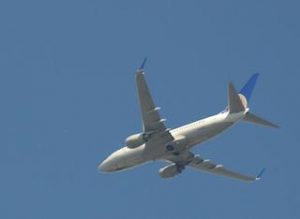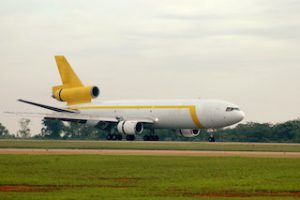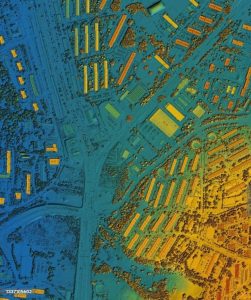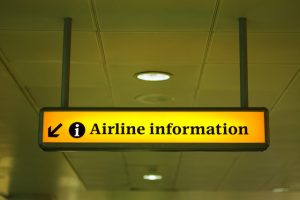Enhancing Aircraft Performance through Airline Pilot Standards (APS) Courses
 Aircraft performance is a critical aspect of aviation that directly influences safety, operational efficiency, and cost-effectiveness. The Airline Pilot Standards (APS) course offers pilots advanced training in understanding and optimizing aircraft performance. This comprehensive training covers various aspects of aircraft performance, equipping pilots with the skills and knowledge needed to ensure more efficient and safe operations. This article explores the key elements of aircraft performance as taught in APS courses and their importance in achieving operational efficiency.
Aircraft performance is a critical aspect of aviation that directly influences safety, operational efficiency, and cost-effectiveness. The Airline Pilot Standards (APS) course offers pilots advanced training in understanding and optimizing aircraft performance. This comprehensive training covers various aspects of aircraft performance, equipping pilots with the skills and knowledge needed to ensure more efficient and safe operations. This article explores the key elements of aircraft performance as taught in APS courses and their importance in achieving operational efficiency.
Importance of aircraft performance in aviation
Optimizing aircraft performance is vital for several reasons:
- Safety: Ensuring that an aircraft operates within its performance limits is crucial for maintaining safety. Understanding performance metrics helps pilots make informed decisions during critical phases of flight, such as takeoff, climb, cruise, descent, and landing.
- Operational efficiency: Efficient aircraft performance management leads to reduced fuel consumption, lower operational costs, and improved schedule adherence. This is essential for maintaining competitive advantage and profitability in the aviation industry.
- Environmental impact: Optimizing aircraft performance contributes to reduced carbon emissions, supporting environmental sustainability and regulatory compliance.
Key components of aircraft performance training in APS Course
APS courses offer a structured curriculum that covers various critical aspects of aircraft performance, including theoretical knowledge, practical application, and the use of advanced tools and technologies.
Understanding aircraft performance metrics
APS courses provide pilots with a deep understanding of essential aircraft performance metrics, including:
-
- Takeoff and landing performance: Pilots learn to calculate takeoff and landing distances based on factors such as aircraft weight, runway length, weather conditions, and airport elevation. Understanding these metrics is crucial for ensuring safe operations in different environments.
- Climb and descent performance: Training includes the study of climb and descent profiles, helping pilots optimize fuel consumption and maintain efficient altitude transitions. This is particularly important for managing fuel efficiency and meeting air traffic control (ATC) requirements.
- Cruise performance: Pilots are trained to optimise cruise performance by selecting appropriate speeds and altitudes, balancing fuel efficiency and operational constraints. This includes understanding the concept of the optimal cruise altitude and speed for different flight phases.
- Weight and balance: APS courses emphasise the importance of accurate weight and balance calculations. Pilots learn to manage aircraft weight distribution to ensure stability and performance, taking into account passenger load, cargo, and fuel.
Pre-flight performance planning
Effective pre-flight performance planning is a cornerstone of efficient aircraft operations. APS courses cover various aspects of pre-flight planning, including:
-
- Performance charts and tables: Pilots learn to use performance charts and tables provided by aircraft manufacturers to determine optimal performance parameters for different phases of flight. This includes understanding how to read and interpret these charts accurately.
- Weather considerations: Weather conditions significantly impact aircraft performance. APS courses teach pilots to analyze weather data and anticipate its effects on takeoff, climb, cruise, descent, and landing. This helps in making informed decisions and ensuring safe operations.
- Runway analysis: Understanding runway performance is crucial for safe takeoff and landing operations. Pilots are trained to conduct runway analysis, considering factors such as runway length, surface conditions, and obstacles. This ensures that the aircraft can safely take off and land within the available runway limits.
- Fuel planning: Accurate fuel planning is essential for optimizing aircraft performance. APS courses cover techniques for calculating fuel requirements based on factors such as flight duration, aircraft weight, weather conditions, and alternate airports. This ensures that pilots carry the necessary fuel reserves while minimizing excess weight.
In-flight performance management
Managing aircraft performance during flight is critical for maintaining efficiency and safety. APS courses cover several key aspects of in-flight performance management:
-
- Performance monitoring: Pilots learn to continuously monitor aircraft performance using cockpit instruments and onboard systems. This includes tracking fuel consumption, engine performance, and flight parameters to detect any deviations from the planned performance.
- Optimizing thrust and speed: APS courses emphasise the importance of optimizing thrust settings and cruise speeds to achieve maximum fuel efficiency. Pilots are trained to use cost index calculations to balance speed and fuel consumption effectively.
- Altitude management: Selecting the optimal cruise altitude is essential for fuel efficiency and performance. Pilots learn to make in-flight adjustments to altitude based on real-time weather data, ATC instructions, and aircraft performance. This helps in maintaining efficient operations and minimising fuel consumption.
- Engine management: Proper engine management techniques, such as reducing thrust during descent and using single-engine taxi procedures, are covered in APS courses to minimise fuel burn and enhance performance.
Advanced tools and technologies for aircraft performance optimisation
Modern aviation relies on advanced tools and technologies to enhance aircraft performance. APS courses equip pilots with the knowledge and skills to utilise these tools effectively:
Flight Management Systems (FMS)
Flight Management Systems (FMS) are integral to modern aircraft, providing comprehensive performance management capabilities. APS courses train pilots to use FMS for:
-
- Route planning: FMS allows for precise route planning and optimisation, considering waypoints, airways, and direct routes to minimise fuel consumption and enhance performance.
- Performance predictions: Real-time performance predictions based on current conditions help pilots make informed decisions about adjustments to optimise performance.
- Performance monitoring: FMS continuously monitors aircraft performance, enabling pilots to maintain optimal settings for fuel efficiency and safety.
Aircraft performance monitoring systems
Advanced aircraft performance monitoring systems provide real-time data on fuel consumption, engine performance, and aircraft efficiency. APS courses teach pilots to interpret this data and use it to make adjustments that enhance performance.
Weather radar and predictive tools
Weather radar and predictive tools are essential for avoiding adverse weather conditions that can impact performance. APS courses train pilots to use these tools to anticipate weather changes and adjust flight paths and performance settings accordingly.
Human factors in aircraft performance management
Human factors play a significant role in effective aircraft performance management. APS courses address these factors to ensure that pilots are well-prepared to manage performance efficiently:
-
- Decision-making skills: Effective decision-making is crucial for optimizing aircraft performance. APS courses teach structured decision-making models, such as the OODA loop (Observe, Orient, Decide, Act) and the DECIDE model (Detect, Estimate, Choose, Identify, Do, Evaluate). These models provide pilots with systematic approaches to evaluate options and make informed decisions under pressure.
- Stress and workload management: High stress and workload can impair decision-making and situational awareness, impacting performance management. APS courses include training on stress management techniques, such as controlled breathing and workload prioritisation, to help pilots maintain composure and focus during critical phases of flight.
- Communication and teamwork: Effective communication and teamwork are essential for performance management in a multi-crew environment. APS courses emphasise Crew Resource Management (CRM) principles, teaching pilots to communicate clearly, share information, and collaborate effectively to enhance situational awareness and decision-making.
Regulatory compliance and best practices
Aircraft performance training in APS courses aligns with regulatory standards and best practices established by international aviation organisations and regulatory authorities:
-
- International Civil Aviation Organization (ICAO) standards: The International Civil Aviation Organization (ICAO) sets global standards for aircraft performance and related training. APS courses ensure that pilots are familiar with ICAO guidelines and understand their role in maintaining compliance with these standards.
- Federal Aviation Administration (FAA) regulations: In the United States, the Federal Aviation Administration (FAA) mandates specific training requirements for aircraft performance. APS courses include training on FAA regulations, ensuring that pilots meet the necessary standards and are prepared to apply their skills in accordance with FAA guidelines.
- Industry best practices: In addition to regulatory standards, APS courses incorporate industry best practices for aircraft performance. These practices are developed through collaboration among airlines, aviation organizations, and safety experts, ensuring that pilots receive training that reflects current industry standards and advancements.
Role of continuous improvement and recurrent training
Aircraft performance optimisation is an ongoing process that requires continuous improvement and recurrent training to ensure that pilots remain proficient and up-to-date with the latest techniques and standards:
-
- Recurrent training programs: Recurrent training programs are essential for keeping pilots’ skills sharp and ensuring that they remain proficient in performance management. APS courses include recurrent training modules, where pilots regularly practice performance planning, in-flight adjustments, and real-time decision-making.
- Feedback and evaluation: Continuous improvement is a key aspect of performance management training. Pilots participate in regular evaluations and receive feedback on their performance. This feedback helps identify areas for improvement and ensures that pilots are always working towards enhancing their skills.
- Staying current with technological advancements: The field of aviation is constantly evolving, with new technologies and procedures being developed to enhance safety and efficiency. APS courses ensure that pilots stay current with these advancements, providing training on the latest tools and techniques for performance management.
Optimizing aircraft performance
Optimizing aircraft performance is a critical component of achieving operational efficiency, cost savings, and safety in aviation. Airline Pilot Standards (APS) courses provide pilots with the essential skills and knowledge required to manage aircraft performance effectively, from pre-flight planning to in-flight adjustments and post-flight analysis.
Through comprehensive training on understanding performance metrics, pre-flight performance planning, in-flight performance management, and the use of advanced tools and technologies, APS courses equip pilots with the expertise needed to navigate the complexities of modern flight operations. By aligning with regulatory standards and industry best practices, and emphasizing continuous improvement and recurrent training, APS courses ensure that pilots are well-prepared to optimize aircraft performance and contribute to a safer, more efficient aviation industry.
By mastering aircraft performance techniques, pilots can significantly enhance operational efficiency, reduce fuel consumption, and support environmental sustainability. As aviation continues to evolve, the importance of effective performance management will only grow, making the training provided by APS courses an invaluable asset for pilots and airlines alike.










